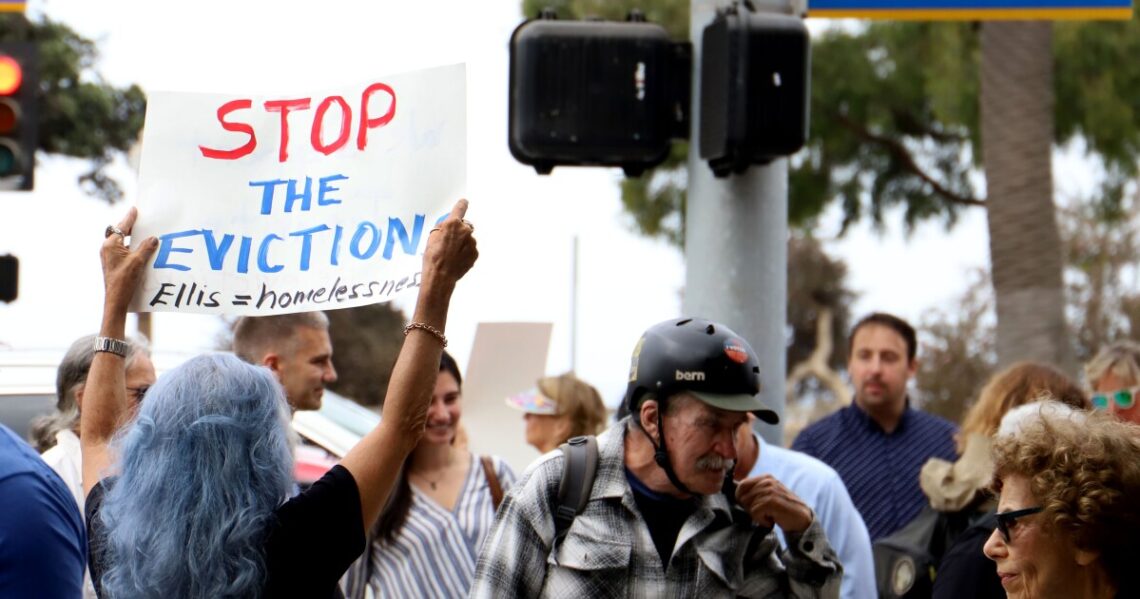In one of the city’s largest and most high-profile eviction cases in decades, a judge has to answer a question that will decide the future of more than 100 Los Angeles renters: What exactly does it mean for a landlord to “go out of business”?
The evictions are playing out at Barrington Plaza, a 712-unit high-rise complex in West L.A. where many tenants pay below market-rate rents due to the city’s rent stabilization ordinance. Corporate landlord Douglas Emmett filed evictions against all of the property’s tenants in May 2023 with the goal of installing a new fire sprinkler system.
Many renters have already left. But about 100 units are still occupied, with tenants now suing the landlord over what they argue is an abuse of California’s Ellis Act.
“The Ellis Act cannot be used for renovations,” said Monique Gomez, one of the leaders of the Barrington Plaza Tenant Association. “If they get away with it in this lawsuit, I believe that there’s going to be a lot of other people and a lot of corporate landlords doing the same thing.”
What the Ellis Act says
Landlords invoke the Ellis Act, passed by state lawmakers in 1985, when they want to vacate properties and take them off the market. The text of the law states its purpose is “to permit landlords to go out of business.” Sometimes that means completely demolishing an apartment building. In other cases it means converting rental units into for-sale condos.
This case is more complicated. At various points, Douglas Emmett representatives have said they plan to keep renting out Barrington Plaza apartments in the future. They argue the Ellis Act gives them the “unfettered…
Read the full article here







